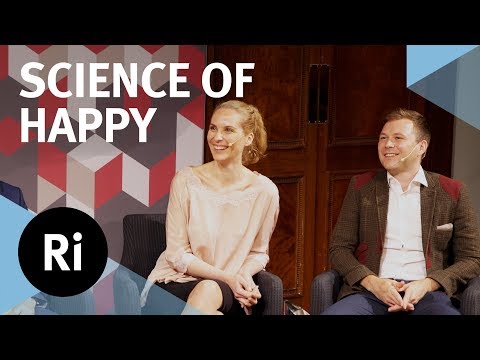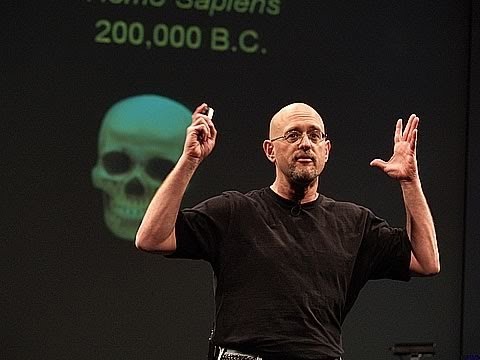How much control do you really have over your happiness, and how effectively are you pursuing it? American Enterprise Institute President Arthur Brooks distills 40 years of social science research into a surprising set of answers.
For more of Arthur’s videos, click here:
More Vision Talks here:
A conservative vision for social justice:
What works in helping the poor?
What prevents the poor from reaching the middle class?
#politics #news #government #education #happy #happiness #philosophy #psychology
Partial transcript:
If I do my job in the next few minutes, I’m going to give you the secret to happiness so that when you go home tonight you can
start living a happier life, and you can start sharing with more
people so that they can have a happier life too. So let’s start with
what we know about happiness. There have been hundreds, literally hundreds, of studies by economists and social scientists and psychologists about happiness, hundreds over the past thirty and forty years. And basically they all start by asking the question: who’s happy? In the United States we know that all the way back to the 1970s a very stable proportion of the population is very happy. About a third of Americans say anonymously and in accurate tests an accurate surveys that they’re very happy people.
Okay, we have no reason to doubt that this is true. A little over fifty percent say they’re somewhat happy, about 10 to 15 percent of the population is chronically depressed and say they’re not very happy. Okay now, that’s actually not the most interesting question. The most interesting question is what brings happiness. And we know the answer to that too. It’s three things, three things bring happiness: genetics, big life events, and choices. And I’m going to tell you about all three, starting with genetics. Now, a few years ago social scientists at the University of Minnesota constructed a wonderful database that included seventy five pairs of identical
twins born between the mid-1930s and the mid 1950s. Now they were separated at birth and adopted by separate families. It’s like a social scientist’s dream it’s almost as if the government had done this. And at age 40 they were reunited and they were given a personality test, so they were asked about the things that were
going on their lives and the way that they viewed their lives. This is really interesting because you’ve got DNA carbon copies of each other and they have different upbringings so you can net out the parts that are nature and the parts that are nurture, statistically, and what did they find? They found that 48 percent of their happiness is genetic. As a matter of fact they found that more
of their personality was genetic than they ever understood before. Forty percent of how you vote is genetic, forty percent of how you worship is genetic, so this explains some things. Do you have
someone in your life who is chronically happy? Do you have a coworker who’s happy all the time? It’s very irritating, by the way, and so it sometimes you wonder, that person is just happy all the time. What are they doing right? What’s their secret? Their secret is their DNA. Are you a grumpy person? Are you dark and brooding. It’s your DNA it’s not your fault, you have lousy parents
is basically what it comes down to. So if that’s the case does it really matter what we do? The answer is yeah because if half of it is taken away from you you better get the other half right. Now forty-percent is genetic but there are other innate qualities, other innate characteristics that are really important, the most interesting of which is gender. Who’s happier, men or women?
Third-party photos, graphics, and video clips in this video may have been cropped or reframed. Music in this video may have been recut from its original arrangement and timing.
In the event this video uses Creative Commons assets: If not noted in the description, titles for Creative Commons assets used in this video can be found at the link provided after each asset.
The use of third-party photos, graphics, video clips, and/or music in this video does not constitute an endorsement from the artists and producers licensing those materials.
AEI operates independently of any political party and does not take institutional positions on any issues. AEI scholars, fellows, and their guests frequently take positions on policy and other issues. When they do, they speak for themselves and not for AEI or its trustees or other scholars or employees.
More information on AEI research integrity can be found here:
#news #politics #government #education
0 views
Date: October 14, 2017
Related videos







